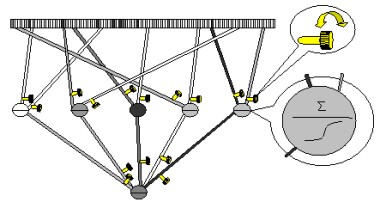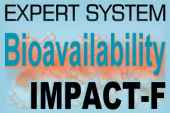Describing molecules effective
by using
low repetition
of information to accelerate the optimisation process.
Methods like
neural networks
or decision trees
are able to detect relationships between complex molecular patterns and specific biological activity
or ADME properties
of molecules.
Artificial intelligence & machine learning
PharmaInformatic uses many different approaches for developing predictive models from data. They can rely on advanced statistical methods like linear and non-linear regression techniques.
Other methods include the use of decision trees or rule based learning.
Some of our methods, like neural networks or genetic algorithms, are inspired by Darwin's theory of natural selection and survival of the fittest. They are especially suited to find non-linear relationships in data.
Outstanding models with a high predictive power can be integrated into our expert systems. Our knowledge and experience of many years and our extensive validations procedures guarantee the high quality of our prediction models.
==> Lead optimisation and selection of a drug-candidate
Recent News:
Artificial Intelligence optimizes discovery of future drugs
PharmaInformatic and BRIDGE BIORESEARCH sign cooperation agreement (more).
Our neural networks can be trained with a variety of data, including molecular patterns or structures, pharmacological activity data or other properties.
While the neural network is optimised, the weights of network connections get adjusted. This allows our neural networks to learn from previous examples or data.



|
© Copyright 2004-2021 PharmaInformatic Boomgaarden. All rights reserved. Site map Contact Terms of Use Imprint |
By using our platform technology, we can detect relationships between complex molecular patterns and properties of molecules.
IMPACT-F calculates oral bioavailability in humans much more precisely
than animal trials.
 |
Bioavailability prediction helps to reduces failures
in clinical trials.
